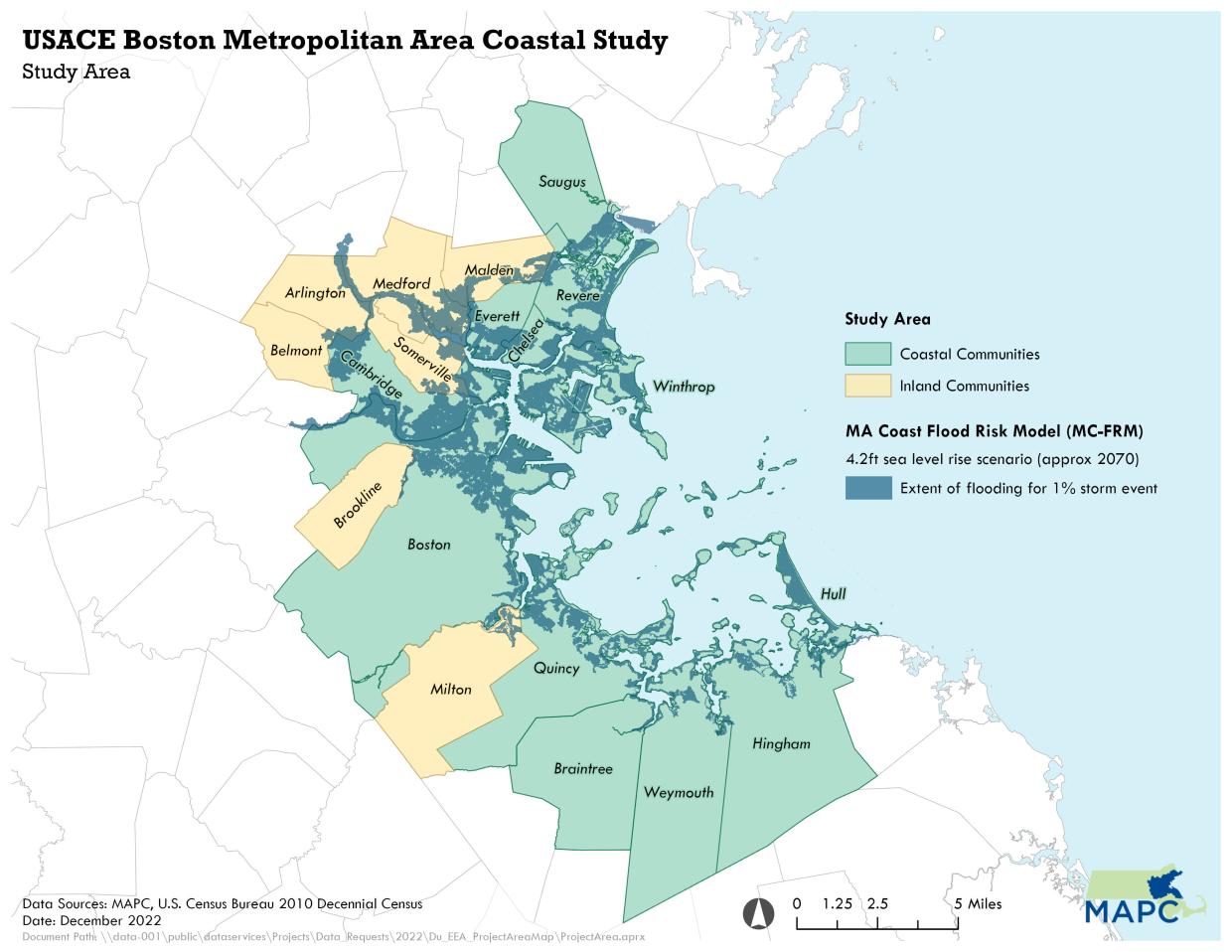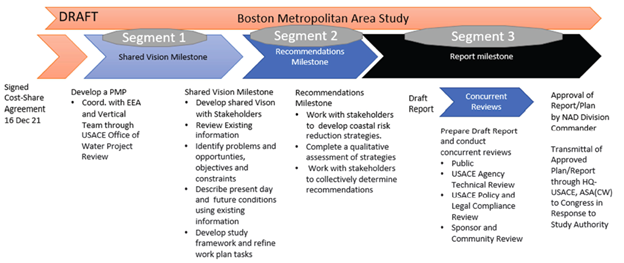Study overview
The Boston Metropolitan Area Coastal Flood Risk Management Study (“Study”) is authorized under Section 729 of the Water Resources Development Act that allows the USACE to study the water resources needs of coastal regions of the United States in consultation with federal, state, tribal, interstate, and local governmental entities. Funding was appropriated by Congress in 2021 and a cost share agreement (75% federal, 25% state) was signed with EEA in December 2021. The study will build on existing local plans and priorities to provide a framework and timeline for regional adaptation investments that consider coastal inundation vulnerability, vulnerable populations and Environmental Justice communities, impact to critical infrastructure, high-level costs and benefits, and input from key stakeholders.
This study will result in a Final Report that recommends regional coastal resilience adaptation strategies for the Boston Harbor communities, and the municipal, state, federal or other leads that should pursue next steps.
This study is being conducted in coordination with the City of Boston’s USACE-led Coastal Storm Risk Management Study.
Study Area
The study area was informed by the extent of flooding associated with the 1% annual storm event in 2070 with 4.3 feet of sea level rise (Massachusetts Coast Flood Risk Model) and will focus on the 12 coastal communities within Boston Harbor impacted directly by coastal storms and rising sea levels. The seven adjacent inland communities located on rivers discharging to the Harbor will also be considered given storm surge that travels inland.
Partners
The project working group includes representatives from federal and state agencies, tribal government, coastal municipalities in the study area, and members of community-based organizations and provides input into the study over the three-year timeframe. Additional stakeholders will be engaged through focus groups and interviews as the project team works toward each milestone (see Timeline and Milestones below). The Working Group will continue meeting throughout the project timeline. The Metropolitan Area Planning Council (MAPC) is facilitating the stakeholder engagement efforts with the USACE and EEA teams.
Timeline and Milestones
Key study milestones and target completion dates include:
- Shared Vision Milestone: Completed June 2023
An inventory of problems and opportunities related to the study goals, defines the overall shared vision among stakeholders, and presents a coordinated study framework that will be used as a reference point as the study continues. - Recommendations Milestone: December 2025
Includes coastal risk reduction strategies, a qualitative assessment of strategies, and recommendations determined collectively with stakeholders. - Draft Report Released for Public and Concurrent Agency Review: March 2026
Draft Report detailing the study and draft recommendations released publicly on the USACE’s website for review. - Final Report Milestone and Approval: August 2026
The Final Report is prepared and provided for approval to the USACE North Atlantic Division Commander. If approved, the Final Report is transmitted to the USACE Headquarters and Congress.
Contacts
For more information, please contact the following staff:
Mia Mansfield, EEA Assistant Secretary for Resilience
mia.mansfield@mass.gov
Joanna Yelen, CZM Boston Harbor Regional Coordinator
joanna.m.yelen@mass.gov
Patricia Bowie, CZM Coastal Resilience Specialist
patricia.bowie@mass.gov
Carolyn Norkiewicz, EEA Municipal Vulnerability Preparedness Program Greater Boston Regional Coordinator
carolyn.m.norkiewicz@mass.gov

